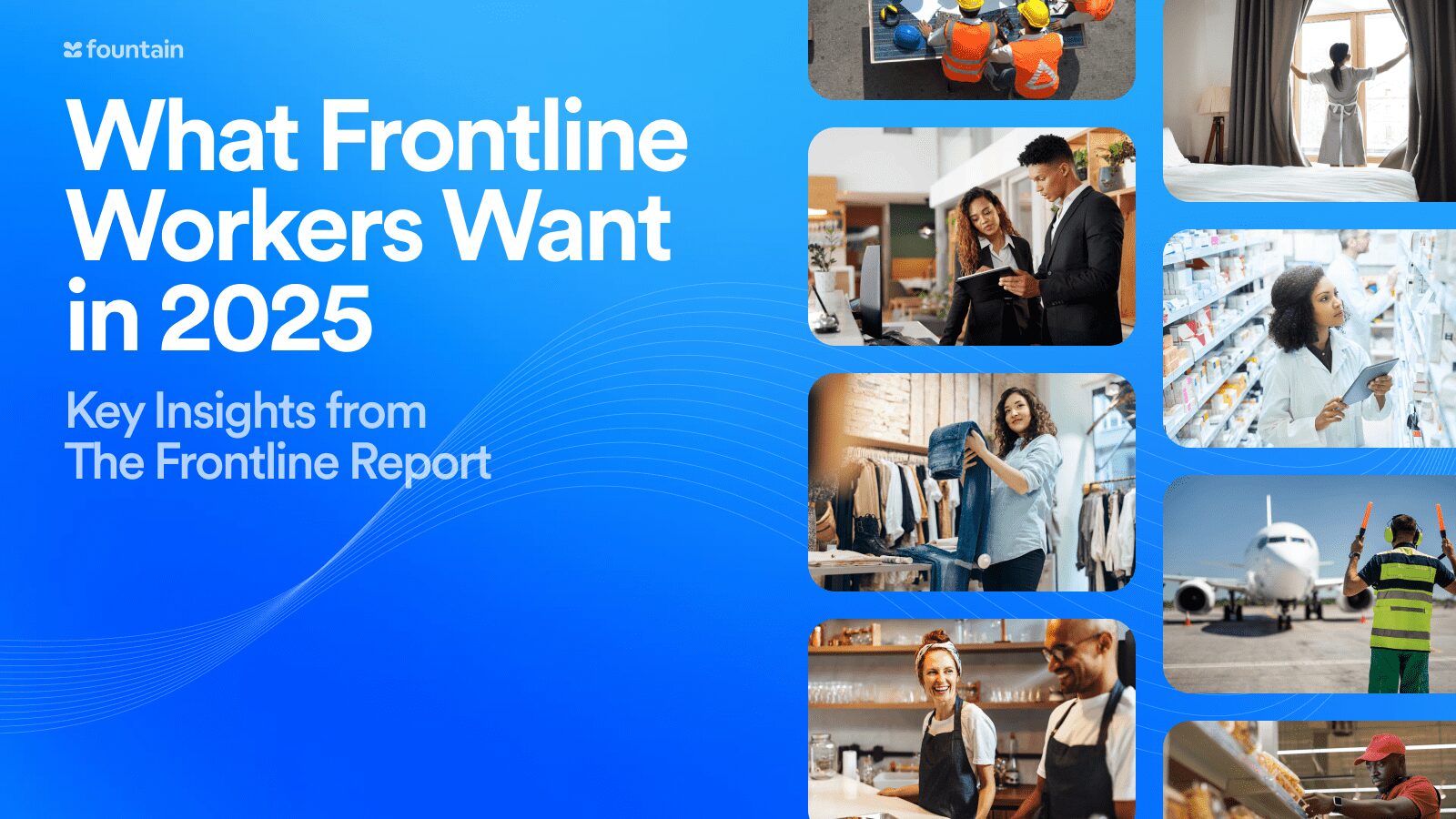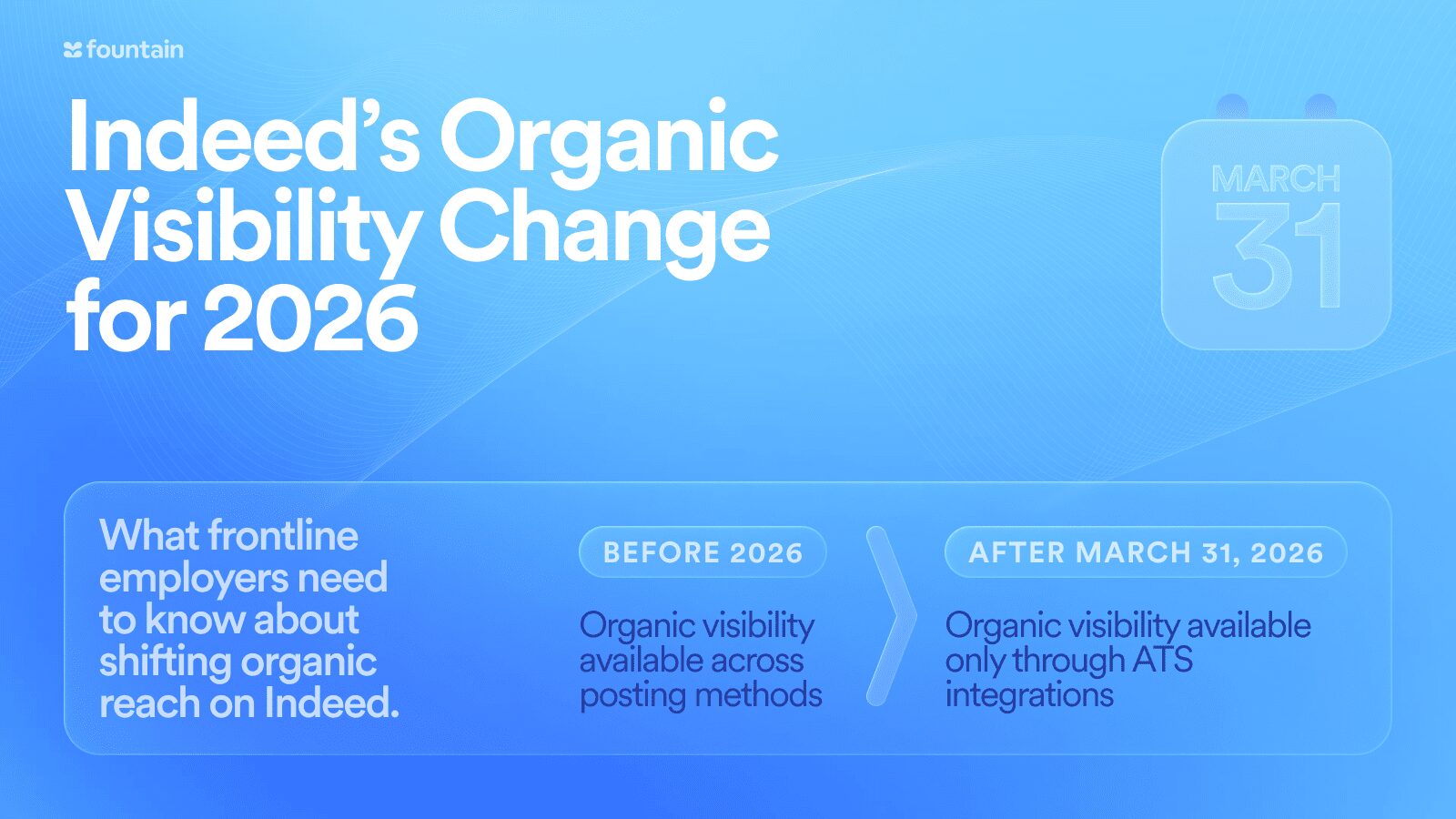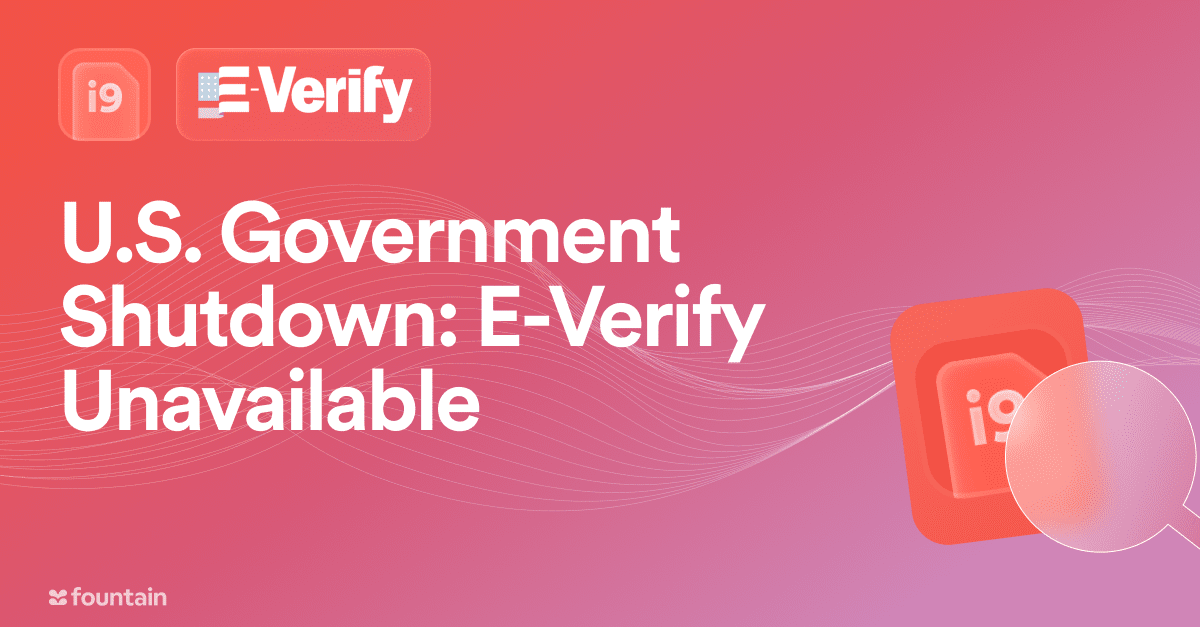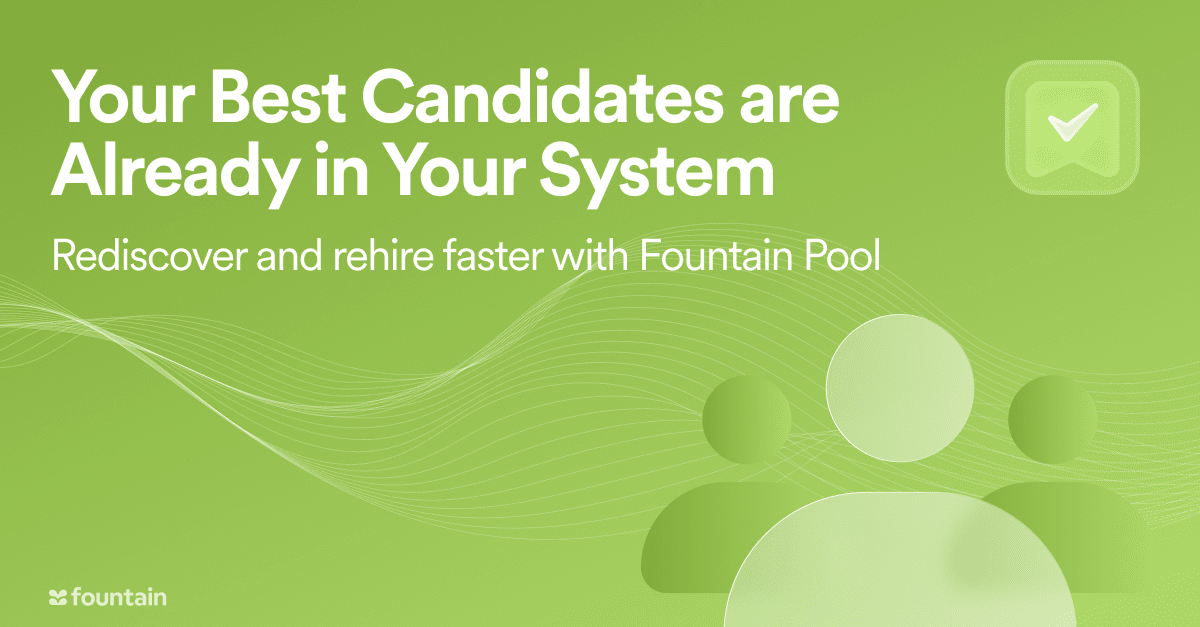Fountain Blog
Read up on the latest recruiting tips and product updates from the Fountain team.
Featured Resources
Join our newsletter
Want the latest in Fountain news, events, and product announcements? Sign up for ‘Hire Volume’ to stay up to to date.

Thanks — you're all set
Please watcch your inbox for our newsletter.
Thank you for subscribing
By submitting this form, you agree to our Terms of Service and consent to our Privacy Policy. Already a member? Login




